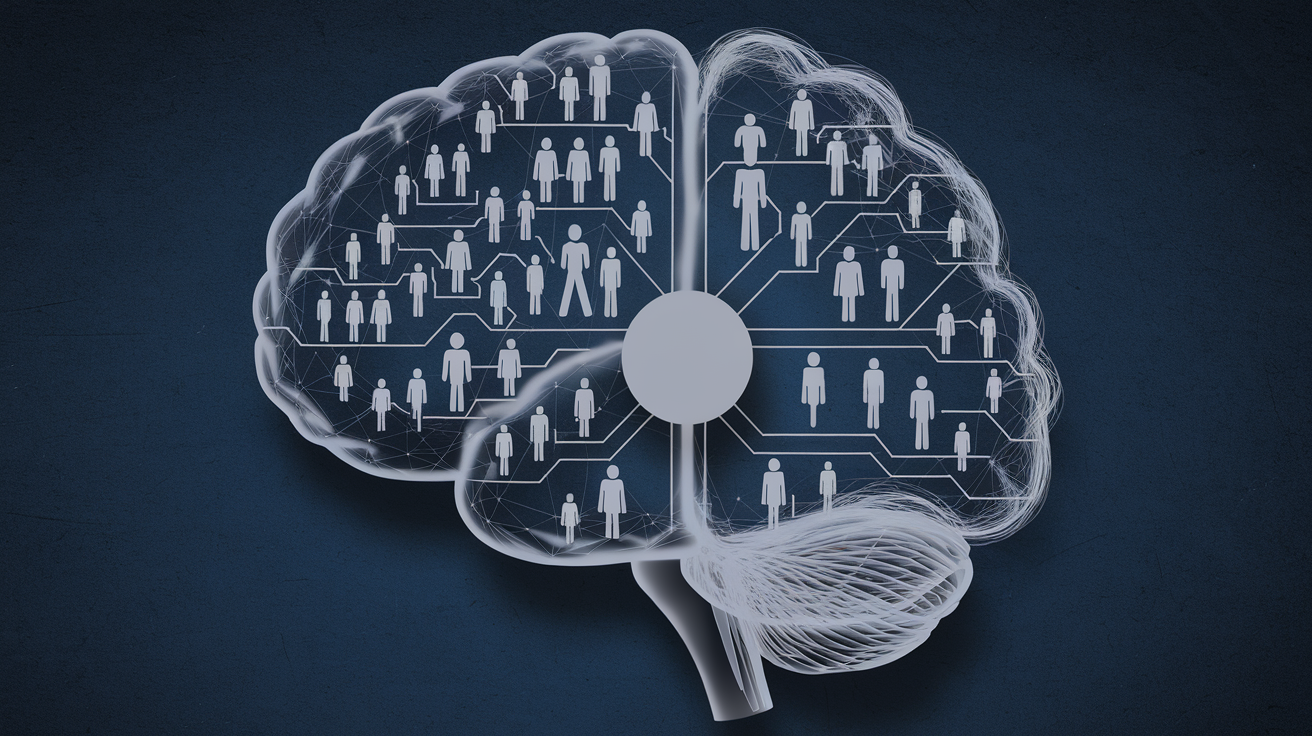Your family tree is a gold mine. Not for riches. For brainpower.
Every ancestor you uncover? It’s like a rep for your mind. That dusty census record? It’s a weight plate for your mental gym.
You thought you were just tracing your roots.
Wrong.
You’re sculpting your brain. But here’s the truth: Most genealogists are leaving gains on the table.
They’re missing out on the real power of their hobby. Not you. Not after today.
I’m about to show you how to turn your family history obsession into a cognitive powerhouse.
We’re talking increased memory, sharper analytical skills, and bulletproof problem-solving abilities.
Sound too good to be true? It’s not. It’s science. And it’s time you leveraged it.
Your ancestors gave you this brain. Now it’s time to make it the best it can be.
1. Puzzle Solving with Family Trees
Family trees are puzzles. Complex, intricate puzzles. Solving them? That’s brain food.
Here’s the deal: Every connection you make fires up those neurons. It’s problem-solving on steroids.
Think about it. You’re juggling dates, names, places. You’re making connections across generations. That’s cognitive gymnastics right there.
Want to take it up a notch? Use online tools. Software that challenges you. Create. Solve. Repeat.
Try this: Set up a mystery ancestor challenge. Pick a random person from your tree. Dig deep. Find every possible connection. It’s like a treasure hunt for your mind.
Your brain will thank you. Trust me.
2. Historical Document Analysis
Old documents are gold mines. But they’re also brain teasers.
Deciphering that faded handwriting? It’s a workout for your gray matter. Connecting dots across centuries? Even better.
Start with census records. Move on to birth certificates. Each document is a new challenge.
Here’s how to level up:
- Learn to read old scripts. Gothic? Cursive? Bring it on.
- Decipher abbreviations. It’s like learning a new language.
- Cross-reference multiple documents. Spot inconsistencies. Solve mysteries.
Pro tip: Don’t just read. Analyze. Question. Connect. That’s where the real growth happens.
Challenge yourself: Pick a document type you’ve never worked with before. Military records? Land deeds? Dive in. The unfamiliarity will push your brain to new limits.
3. Storytelling and Memory Recall
Your ancestors had lives. Rich, complex lives. It’s your job to tell their stories.
Why? Because storytelling boosts memory. Enhances verbal skills. It’s cognitive enhancement disguised as family history.
Write it down. Speak it out. Share it with others. Each retelling strengthens those neural pathways.
Try this exercise:
- Pick an ancestor.
- Research their life events.
- Craft a narrative. Beginning, middle, end.
- Tell their story from memory.
- Repeat with different ancestors.
Bonus round: Tell the story from different perspectives. What if you were that ancestor’s neighbor? Their rival? It’s creativity and empathy training rolled into one.
4. Genealogical Research Challenges
Want to supercharge your problem-solving skills? Set yourself research challenges.
Here’s how:
- Pick a “brick wall” in your family tree.
- Set a specific goal. Find Great-Grandpa’s birthplace. Uncover Aunt Mildred’s maiden name.
- Give yourself a time limit. 24 hours. One week. Whatever works.
- Go all in. Use every resource at your disposal.
It’s like a sprint for your brain. Intense. Focused. Effective.
Join online forums. Genealogy groups. Collaborative challenges push you even further.
Remember: It’s not just about finding answers. It’s about the process. The journey. That’s where the real cognitive gains happen.
5. Geographic Mapping of Ancestors
Time to give your spatial reasoning a workout. Map your ancestors’ movements.
It’s not just about pinpointing locations. It’s about understanding migration patterns. Historical context. The why behind the where.
Start simple:
- Plot known locations on a map.
- Connect the dots. Trace migration routes.
- Research historical events in those areas.
Level up:
- Use GIS tools. Layer historical maps over current ones.
- Analyze terrain. How did geography influence your ancestors’ choices?
- Create interactive maps. Timelines. Visual representations of your family’s journey.
Your brain will thank you. Spatial skills are crucial for overall cognitive health.
6. Language Learning from Ancestral Regions
Did your great-grandparents speak Italian? German? Swahili? Time to dust off those language skills.
Learning a new language? It’s like CrossFit for your brain. Especially when it connects to your roots.
Start small:
- Learn basic genealogical terms in your ancestral language.
- Decipher documents in their original language.
- Practice pronunciation of ancestral names and places.
Go bigger:
- Use language learning apps. Duolingo. Babbel. Immerse yourself.
- Join community classes. Practice with native speakers.
- Read historical documents in their original language. It’s a double whammy of cognitive benefits.
Remember: It’s not about fluency. It’s about the process. The mental stretch. That’s where the magic happens.
7. DNA Analysis and Interpretation
DNA testing isn’t just about finding cousins. It’s a crash course in genetics, statistics, and critical thinking.
Here’s your game plan:
- Take a DNA test. Any reputable company will do.
- Dive into the raw data. It’s a goldmine of information.
- Learn to interpret results. Understand confidence levels. Margin of error.
- Cross-reference with traditional genealogical research.
Challenge yourself:
- Learn about different types of DNA tests. Autosomal. Y-DNA. mtDNA.
- Understand inheritance patterns. X-chromosome inheritance is a brain-bender.
- Join DNA analysis groups. Collaborate on complex cases.
It’s science. It’s detective work. It’s a mental workout like no other.
8. Creative Writing: Ancestral Fiction
Time to flex those creative muscles. Write fiction based on your ancestors’ lives.
Why? Because it combines research, analysis, and creativity. It’s a full-brain workout.
Start here:
- Pick an ancestor. Or several.
- Research their time period. Social norms. Historical events.
- Create a plot based on known facts.
- Fill in the gaps with plausible fiction.
Level up:
- Write from multiple perspectives.
- Create dialogues based on historical speech patterns.
- Weave in historical events. Make your ancestors part of the bigger picture.
Remember: It’s not about literary perfection. It’s about the mental exercise. The cognitive stretch.
9. Attending Genealogy Webinars
Continuous learning? It’s not optional. It’s essential for brain health.
Genealogy webinars are your secret weapon. Here’s why:
- Expert insights. You’re learning from the best in the field.
- Interactive elements. Q&A sessions. Live chats. It keeps you engaged.
- Diverse topics. From DNA analysis to archival research. Always something new to learn.
How to maximize the benefits:
- Take notes. Active listening enhances retention.
- Ask questions. Engage with the material.
- Apply what you learn immediately. Theory into practice.
Find reputable webinars like Family Tree Webinars. Virtual conferences. Make it a regular part of your routine.
Your brain craves new information. Feed it.
Full-Body Workout
Genealogy isn’t just a hobby. It’s a full-body workout for your brain.
Puzzle-solving. Analysis. Creativity. Language skills. It’s all there.
Incorporate these exercises into your routine. Make them habits. Your cognitive health depends on it.
Remember: A sharp mind isn’t just about genealogy. It’s about life. Quality of life.
So what are you waiting for? Your ancestors’ stories are calling. And your brain is ready for the challenge.



A fantastic statement of a very neglected part of genealogy.
Excellent article!!! I am a private investigator who discovered that my genealogical skills are useful for estate settlement firms and attorneys who deal with heir vetting. You have provided useful tools that will add to my research skills. Thank you for your enlightening information!!!